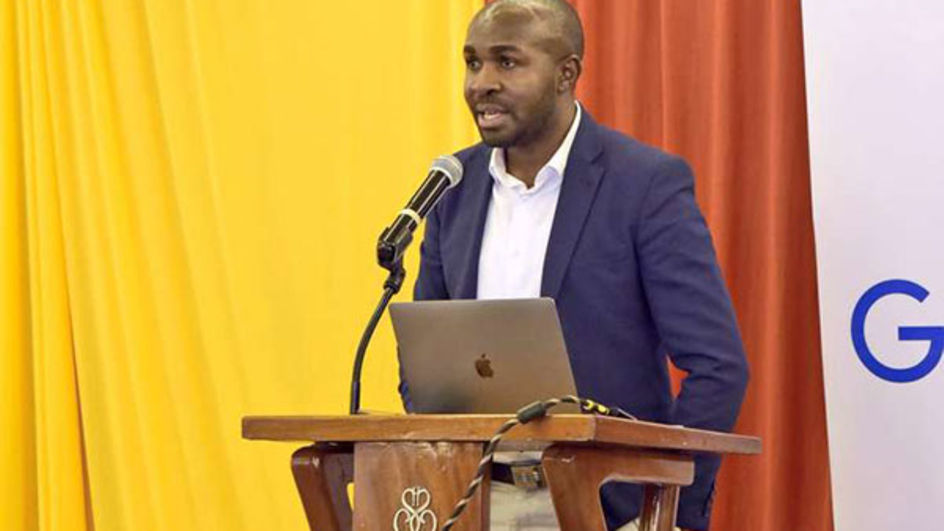
Emmanuel Mutuma is a graduate of digital marketing and social media from the London School of Business and Finance. For 15 years, he has worked in the creative, advertising, marketing and information technology departments of different organisations.
He is the chief executive officer of online job site BrighterMonday and a board member of the Marketing Society of Kenya.
Do you have other interests besides your day job?
I love sports, especially rugby, which I used to play. Two years ago, I started playing golf. I also love dogs and breed them both for security purposes and as pets.
Your background is in digital marketing. How did you get into recruitment?
Digital marketing is quite dynamic, which is why I chose to study computer science, which allows one to keep track of consumer habits digitally.
Users’ behaviours and preferences are highly fluid, and the only way you can keep track of them is by carefully monitoring their changing preferences.
Client engagement is also easier online. Working at BrighterMonday was exciting for me because I knew that I would get to interact with both recruiters and job seekers.
Discuss the evolution of online job sites in Kenya…
About 15 years ago, looking for a job was a daunting task. Information on the available jobs was either out dated or inaccessible.
There was also lack of transparency in the entire process which was costly because one had to print their CVs and send them out via post.
It was also a nightmare for employers who had to pore through hundreds or thousands of job applications, sometimes having to hire interns.
Today, a job seeker can apply for more than 15 jobs at once at almost no cost. At my company, for instance, we receive about 200,000 job applications every month.
Why would you recommend online job sites over traditional methods of job hunting and recruitment?
Things are changing. An engineer in Kenya can apply for a job in Spain, for instance.
For us, assessment of candidates goes beyond the CV because it is possible to evaluate someone’s skills through a series of tests.
Artificial Intelligence reaches the widest pool of candidates and thanks to it, employers can now filter through a pile of digital applications and get the right candidate within seconds. Shortlisting has been made easier.
If you were a job seeker today, what three things would you do differently?
It boils down to what your strengths are as a candidate, and whether you can bring them out.
I would work on maximising on my strengths. Investing time to create a strong digital presence would be my priority, including on social networks. I would also work on upgrading my skills.
Tell us about your company’s campaign dubbed Unity in Adversity…
Even during this challenging time, organisations want and need to hire the right candidates.
This is especially so because of the increasing need for restructuring for continuity post Covid-19.
Our company is offering employers an opportunity to do job listings on the site for free for the next three months, with emphasis on essential service providers.
That is our contribution to the fight against the pandemic. The objective is to keep the jobs ecosystem alive during this period.
Most employers are now laying off their workers. What’s the future of employment?
Covid-19 has been disruptive in many ways. Our analysis has shown a 59 per cent slump in job advertisements in Kenya over the last three months.
The widespread uncertainty and drop in operations has forced many companies to freeze recruitment.
More than 700,000 jobs have been lost in East Africa, mostly in the informal sector, since mid-March.
While the economy had been projected to grow by up to six per cent, projections indicate that this will drop to between one and two per cent.
The first to suffer will be unemployment rates, with forced leave and pay cuts expected to continue. Only innovative companies will survive the new normal.
Does sending CVs to many different potential employers still work?
This is where applicants go wrong. Today, 98 per cent of job applications are received digitally.
No employer wants to go through the cumbersome process of sorting out hard copy resumes. Chapter Six of the Constitution requires candidates for government jobs to have all the required documents during the process.
You don’t, however, need certificates and other documents to apply for a job. It is only after you’ve been shortlisted that you may need to produce them for purposes of verification.
This usually happens at the third or fourth stage of the recruitment process. Accompany your application letter with your documents only when the employer demands it. They may have a reason to ask.
Any three tips job seekers often overlook but are actually critical?
Most job seekers don’t take time to prepare an attractive application. Others apply for any job anywhere because they’re desperate.
Some also fail to research about the companies they’d like to work for. What better way to show your interest in a company than by acquainting yourself with its organisational culture?
What is the secret to success, according to you?
People will have different expectations of you based on where you work, and your role. To thrive as a professional, your academic knowledge, interpersonal skills such as communication, and other softer elements such as attitude and personal drive are key.
These qualities determine your output. How you perceive your job, communicate and collaborate with others is of utmost importance.
Do you have any flaws, CEO?
When I give a task to any member of my team, I give them full powers to deliver. This is almost like throwing them to the deep end, but it helps them grow.
I also tend to trust my gut, by going with the plan I believe will work in any given situation. Of course the outcome isn’t always the desired one.
